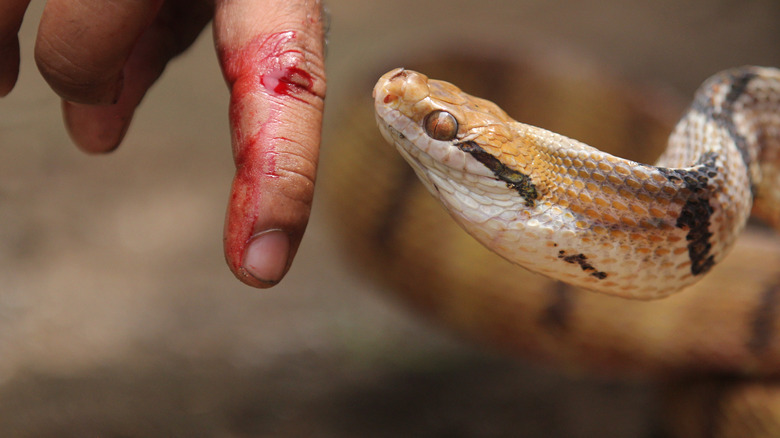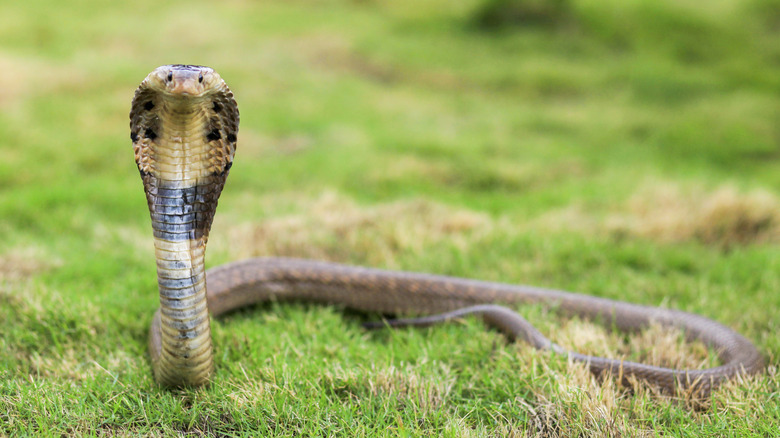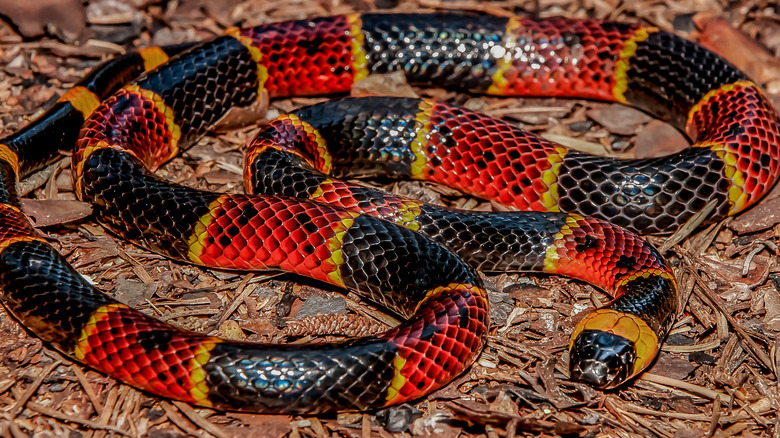Never Try To Suck The Venom Out Of A Snakebite. Here's What To Do Instead
According to WebMD, about 1.8 million people are bitten by snakes every year, p. At most, barely over 5% of these bites prove fatal, but there are things that you can do to avoid being that statistic. And despite what happens in old Western movies, sucking the venom out with your mouth is not one of them.
The common myth about treating a snake bite is that you should apply a tourniquet above the wound, open it up with a knife, and then use your mouth to suck the venom back out of your body. In reality, this won't work, and it might even cause more damage. Notably, cutting off the blood supply with a tourniquet can cause the venom to pool in the body, which is more dangerous than allowing it to flow freely. In addition, slicing into the injury or sucking on it can damage nerves and increase the chance of infection — especially if you are still in the wilderness.
Even though a snake bite can be painful, avoid icing it. And don't take over-the-counter pain medications like ibuprofen unless a doctor advises it, as it can make bleeding worse.
First aid for snake bites
Before anything else, you need to contact emergency medical services. But just because you shouldn't slice into the wound and suck out the venom, doesn't mean there's nothing you can do while you wait for them to arrive. Although it will be difficult, try to remain calm, as this will slow down to speed of the venom as it moves through the body. As much as possible, you should keep the bite wound below the level of your heart and hold still while you wait for help to arrive.
If the bite is on an area with tight clothing or jewelry, take them off in case the area swells up. You should also wash out the wound with soap and water to prevent infection, and then cover it with a clean bandage if you have one. Although you should never ice the injury, you can put a cool compress over the bite if you want to.
Identify the snake
If you're able to, make note of the appearance of the snake that bit you, including its color, shape, and any distinctive markings. This will help emergency medical services determine what kind of snake has bitten you, whether or not it's venomous, and if it is, what kind of antivenom they should use to help you. While it's important to identify the snake, you should not try to catch it or kill it to show the ER doctors. A photograph taken from a safe distance (if possible) can be just as effective without putting yourself at risk.
You can sometimes tell if a snake bite is venomous yourself by the symptoms you are experiencing. While snake bites are painful in general, snake venom may cause more intense pain, swelling, and bruising. You may also experience trouble breathing, weakness, and an unexpected taste in your mouth. Some kinds of venom can even cause muscle weakness and tingling in extremities. You should be evaluated by a doctor as soon as possible after any snake bite, but if you are experiencing any symptoms that seem like the result of venom, call emergency medical services immediately.


